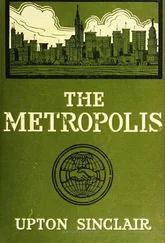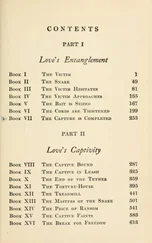Upton Sinclair - Dragons’s teeth
Здесь есть возможность читать онлайн «Upton Sinclair - Dragons’s teeth» весь текст электронной книги совершенно бесплатно (целиком полную версию без сокращений). В некоторых случаях можно слушать аудио, скачать через торрент в формате fb2 и присутствует краткое содержание. Жанр: Историческая проза, на английском языке. Описание произведения, (предисловие) а так же отзывы посетителей доступны на портале библиотеки ЛибКат.
- Название:Dragons’s teeth
- Автор:
- Жанр:
- Год:неизвестен
- ISBN:нет данных
- Рейтинг книги:3 / 5. Голосов: 1
-
Избранное:Добавить в избранное
- Отзывы:
-
Ваша оценка:
- 60
- 1
- 2
- 3
- 4
- 5
Dragons’s teeth: краткое содержание, описание и аннотация
Предлагаем к чтению аннотацию, описание, краткое содержание или предисловие (зависит от того, что написал сам автор книги «Dragons’s teeth»). Если вы не нашли необходимую информацию о книге — напишите в комментариях, мы постараемся отыскать её.
Dragons’s teeth — читать онлайн бесплатно полную книгу (весь текст) целиком
Ниже представлен текст книги, разбитый по страницам. Система сохранения места последней прочитанной страницы, позволяет с удобством читать онлайн бесплатно книгу «Dragons’s teeth», без необходимости каждый раз заново искать на чём Вы остановились. Поставьте закладку, и сможете в любой момент перейти на страницу, на которой закончили чтение.
Интервал:
Закладка:
The Hungarian count was a gay companion, and told diverting stories of his liaisons; he had a passion for playing the game of Halma, and Lanny learned it in order to oblige him. The business man, Herr Klaussen, told stories illustrating the impossibility of conducting any honest business under present conditions; then he would say: "Do you have things thus in America?" Lanny would reply: "My father complains a great deal about politicians." He would tell some of Robbie’s stories, feeling certain that these wouldn’t do him any harm in Germany.
Incidentally Herr Klaussen expressed the conviction that the talk about a plot against Hitler was all Quatsch; there had been nothing but protest and discussion. Also, the talk about the Führer’s being shocked by what he had discovered in the villa at Wiessee was Dummheit, because everybody in Germany had known about Röhm and his boys, and the Führer had laughed about it. This worthy Bürger of Munich cherished a hearty dislike of those whom he called die 'Preiss’n— the Prussians—regarding them as invaders and source of all corruptions. These, of course, were frightfully dangerous utterances, and this was either a bold man or a foolish one. Lanny said: "I have no basis to form an opinion, and in view of my position I’d rather not try." He went back to playing Halma with the Hungarian, and collecting anecdotes and local color which Eric Vivian Pomeroy-Nielson might some day use in a play.
V
Lanny had spent three days as a guest of the state of Bavaria, and now he spent ten as a guest of the city of Munich. Then, just at the end of one day, a friendly warder came and said: "Bitte, kommen Sie, Herr Budd."
It would do no good to ask questions, for the warders didn’t know. When you left a cell, you said Ade, having no way to tell if you would come back. Some went to freedom, others to be beaten insensible, others to Dachau or some other camp. Lanny was led downstairs to an office where he found two young S.S. men, dapper and correct, awaiting him. He was pleased to observe that they were not the same who had arrested him. They came up, and almost before he realized what was happening, one had taken his wrist and snapped a handcuff onto it. The other cuff was on the young Nazi’s wrist, and Lanny knew it was useless to offer objections. They led him out to a courtyard, where he saw his own car, with another uniformed S.S. man in the driver’s seat. The rear door was opened. "Bitte einsteigen."
"May I ask where I’m being taken?" he ventured.
"It is not permitted to talk," was the reply. He got in, and the car rolled out into the tree-lined avenue, and into the city of Munich. They drove straight through, and down the valley of the Isar, northeastward.
On a dark night the landscape becomes a mystery; the car lights illumine a far-stretching road, but it is possible to imagine any sort of thing to the right and left. Unless you are doing the driving, you will even become uncertain whether the car is going uphill or down. But there were the stars in their appointed places, and so Lanny could know they were headed north. Having driven over this route, he knew the signposts; and when it was Regensburg and they were still speeding rapidly, he made a guess that he was being taken to Berlin.
"There’s where I get my examination," he thought. He would have one more night to do his thinking, and then he would confront that colossal power known as the Geheime Staats-Polizei, more dark than any night, more to be dreaded than anything that night contained.
The prisoner had had plenty of sleep in the jail, so he used this time to choose his Ausrede, his "alibi." But the more he tried, the worse his confusion became. They were bound to have found out that he had drawn thirty thousand marks from the Hellstein bank in Munich; they were bound to know that he had paid most of it to Hugo; they were bound to know that some sort of effort had been made to take Freddi out of Dachau. All these spelled guilt on Lanny’s part; and the only course that seemed to hold hope was to be frank and naive; to laugh and say: "Well, General Göring charged Johannes Robin his whole fortune to get out, and used me as his agent, so naturally I thought that was the way it was done. When Hugo offered to do it for only twenty-eight thousand marks, I thought I had a bargain."
In the early dawn, when nobody was about except the milkman and the machine-gun detachments of the Berlin police, Lanny’s car swept into the city, and in a workingclass quarter which he took to be Moabit, drew up in front of a large brick building. He hadn’t been able to see the street signs, and nobody took the trouble to inform him. Was it the dreaded Nazi barracks in Hedemannstrasse, about which the refugees talked with shudders? Was it the notorious Columbus-Haus? Or perhaps the headquarters of the Feldpolizei, the most feared group of all?
"Bitte aussteigen," said the leader. They had been perfectly polite, but hadn’t spoken one unnecessary word, either to him or to one another. They were machines; and if somewhere inside them was a soul, they would have been deeply ashamed of it. They were trying to get into the Reichswehr, and this was the way.
They went into the building. Once more they did not stop to "book" the prisoner, but marched him with military steps along a corridor, and then down a flight of stone stairs into a cellar. This time Lanny couldn’t be mistaken; there was a smell of blood, and there were cries somewhere in the distance. Once more he ventured a demand as to what he was being held for, what was to be done to him? This time the young leader condescended to reply: "Sie sind ein Schutzhäftling."
They were telling him that he was one of those hundred thousand persons, Germans and foreigners, who were being held for their own good, to keep harm from being done to them. "Aber," insisted Lanny, with his best society manner, "I haven’t asked to be a Schutzhäftling — I’m perfectly willing to take my chances outside." If any of them had a sense of humor, this was not the place to show it. There was a row of steel doors, and one was opened. For the first time since these men had confronted Lanny in the Munich jail the handcuff was taken from his wrist, and he was pushed into a "black cell" and heard the door clang behind him.
VI
The same story as at Stadelheim; only it was more serious now, because that had been an accident, whereas this was deliberate, this was after two weeks of investigation. Impossible to doubt that his plight was as serious as could be. Fear took complete possession of him, and turned his bones to some sort of pulp. Putting his ear to the opening in the door, he could have no doubt that he heard screaming and crying; putting his nose to the opening, he made sure that he smelled that odor which he had heretofore associated with slaughter-houses. He was in one of those dreadful places about which he had been reading and hearing, where the Nazis systematically broke the bodies and souls of men—yes, and of women, too. In the Brown Book he had seen a photograph of the naked rear of an elderly stout woman, a city councilor of the Social-Democratic party, from her shoulders to her knees one mass of stripes from a scientific beating.
They weren’t going to trouble to question him, or give him any chance to tell his story. They were taking it for granted that he would lie, and so they would punish him first, and then he would be more apt to tell the truth. Or were they just meaning to frighten him? To put him where he could hear the sounds and smell the smells, and see if that would "soften him up"? It had that effect; he decided that it would be futile to try to conceal anything, to tell a single lie. He saw his whole past lying like an open book before some Kriminalkommissar, and it was a very bad past indeed from the Nazi point of view; every bit as bad as that which had brought Freddi Robin some fourteen months of torture.
Читать дальшеИнтервал:
Закладка:
Похожие книги на «Dragons’s teeth»
Представляем Вашему вниманию похожие книги на «Dragons’s teeth» списком для выбора. Мы отобрали схожую по названию и смыслу литературу в надежде предоставить читателям больше вариантов отыскать новые, интересные, ещё непрочитанные произведения.
Обсуждение, отзывы о книге «Dragons’s teeth» и просто собственные мнения читателей. Оставьте ваши комментарии, напишите, что Вы думаете о произведении, его смысле или главных героях. Укажите что конкретно понравилось, а что нет, и почему Вы так считаете.












